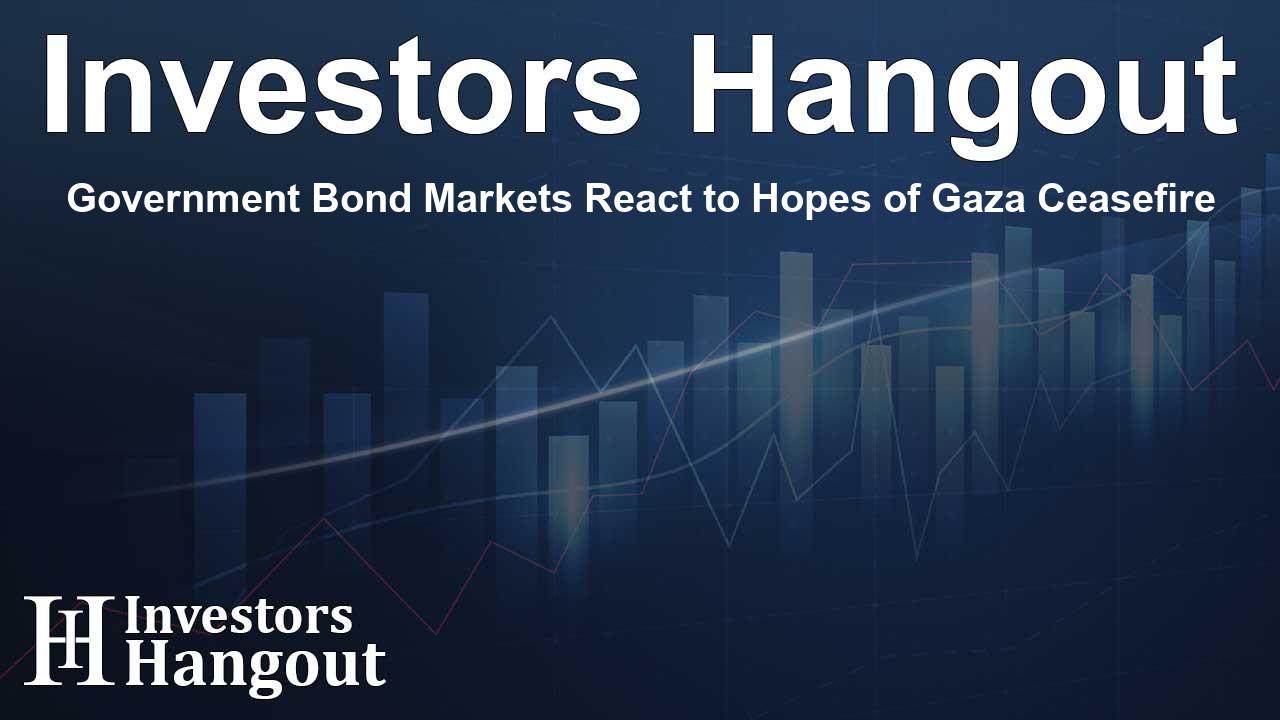Government Bond Markets React to Hopes of Gaza Ceasefire

Government Bond Markets Experience Positive Momentum
Recent developments surrounding a potential ceasefire deal to end the ongoing conflict in Gaza have noticeably impacted the region's government bond markets. Investors are feeling a sense of relief as they observe signs of optimism after a challenging period marked by 15 months of unrest.
Efforts to Finalize Ceasefire Agreement
Negotiations are taking place in Qatar, where key parties are working towards finalizing not just a ceasefire but also the release of hostages. The sentiment among negotiators is buoyed by the encouragement from various leaders, including U.S. President Joe Biden, who expressed that a resolution might be within reach.
Initial Outcomes Still Awaited
As discussions commenced, the atmosphere was charged with anticipation, yet, after several hours, concrete outcomes had yet to surface. Despite this uncertainty, Israel's bonds and those from other nations such as Lebanon, Egypt, and Jordan have started to see an upward trajectory. This increase reflects the growing optimism among investors, bolstered by the hope that peace may soon return to the region.
Currency Markets Respond Favorably
In the currency markets, the Israeli shekel and the Egyptian pound registered slight gains, signaling a positive shift in investor confidence. The prospect of a ceasefire has injected renewed energy into the markets, leading to cautious but optimistic trading behaviors.
Historic Context of Recent Events
Securing a ceasefire would mark a significant milestone in what has been a tumultuous few months for the Middle East. Notable events leading to this moment include the decisive actions taken by Israel against Hamas, notably the elimination of a high-ranking leader, Yahya Sinwar. Additionally, there have been changes in Lebanon's political landscape that suggest a potential opening towards governance following a lengthy period of stagnation.
The Implications of Syria's Changing Leadership
Moreover, the region has witnessed a reduction in Hezbollah's influence, potentially allowing Lebanon to move forward with electing a new president. One of the most unexpected developments has been the turmoil surrounding Syria, where long-standing leader Bashar Al-Assad's position has come under scrutiny. These shifts are reshaping perceptions and expectations among regional stakeholders.
Market Sentiment and Optimism
Portfolio managers like Marten Bressel from FIM Partners note that these cumulative changes are contributing to a more favorable outlook for the region. He remarked on the growing trust that Syria's newly emerging government could foster better relations with Western nations.
Lebanon's Economic Recovery
Lebanon has emerged as a focal point for investors, with its bond markets nearly tripling in value over recent months. This surge is largely attributable to the hope that Lebanon will address its significant financial challenges as the political deadlock appears to be loosening its grip.
Challenges Facing Israeli Markets
However, the aftermath of the conflict in Gaza continues to weigh heavily on Israeli markets. The protracted fighting has resulted in downgrades to the country's sovereign credit rating, a notable shift given that Israel had maintained a strong position prior to these events. Investors are now navigating a complex landscape as they assess the potential for recovery and the importance of peace in restoring stability.
Frequently Asked Questions
What impact does the ceasefire deal have on regional stability?
The ceasefire deal brings hope for improved relations and stability in the region, potentially paving the way for economic recovery.
Why are government bond markets responding positively?
Investor optimism surrounding peace talks has led to increased demand for government bonds, boosting market performance.
How has the conflict affected Israel's economy?
Israel's economy has suffered due to the conflict, including downgrades to its credit rating and investor confidence issues.
What are the key events leading to the current negotiations?
Recent events include the elimination of a Hamas leader and changes in Lebanon's political environment, which have facilitated discussions.
Will Lebanon be able to address its financial problems soon?
With renewed political activity and investor interest, there is cautious optimism that Lebanon will begin to tackle its financial issues effectively.
About The Author
Contact Owen Jenkins privately here. Or send an email with ATTN: Owen Jenkins as the subject to contact@investorshangout.com.
About Investors Hangout
Investors Hangout is a leading online stock forum for financial discussion and learning, offering a wide range of free tools and resources. It draws in traders of all levels, who exchange market knowledge, investigate trading tactics, and keep an eye on industry developments in real time. Featuring financial articles, stock message boards, quotes, charts, company profiles, and live news updates. Through cooperative learning and a wealth of informational resources, it helps users from novices creating their first portfolios to experts honing their techniques. Join Investors Hangout today: https://investorshangout.com/
The content of this article is based on factual, publicly available information and does not represent legal, financial, or investment advice. Investors Hangout does not offer financial advice, and the author is not a licensed financial advisor. Consult a qualified advisor before making any financial or investment decisions based on this article. This article should not be considered advice to purchase, sell, or hold any securities or other investments. If any of the material provided here is inaccurate, please contact us for corrections.
